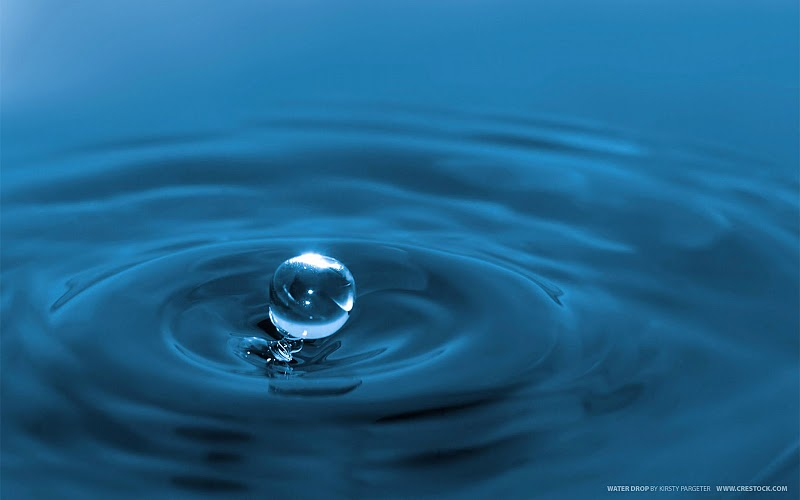 The Harvard study showing that consuming up to six cups of coffee, regular or decaffeinated, a day can reduce the risk of the deadliest form of prostate cancer by 60% may have many folks running to the counter for another cup. Even three cups a day was shown to have an effect of reducing risk by 30%. The study showed that it did not matter if the subjects were life-long coffee drinkers, only that they had been for the last eight years.
The Harvard study showing that consuming up to six cups of coffee, regular or decaffeinated, a day can reduce the risk of the deadliest form of prostate cancer by 60% may have many folks running to the counter for another cup. Even three cups a day was shown to have an effect of reducing risk by 30%. The study showed that it did not matter if the subjects were life-long coffee drinkers, only that they had been for the last eight years.
It is important to keep in mind that regular prostate exams are important, even though death from prostate cancer has a statistically low occurrence. There is an old saying “most men die with prostate cancer, not of it” that most medical practitioners have heard at some point.
The benefit of moderate coffee consumption is no news, but the benefit of these higher levels of consumption is a new twist. Over the years, studies have shown that moderate (3-5 cups a day) to light (1-2 cups a day) coffee consumption can reduce the occurrence and severity of senile dementia, keeping the mind sharp as we age. There are antioxidant benefits from coffee that we have known about for a long time, contributing to reduction in cancer causing free-radicals abundant in our modern diets. Its effect on helping to reduce insulin levels has been linked to reductions in diabetes, liver disease and Parkinson’s disease.
When it comes to caffeine consumption, there is often the related issue, however, of fatigue. Fatigue is sometimes one of the only external indicators that we have a problem within our body systems. Caffeine is one of the ways that we can mask fatigue.
COFFEE MASKING TRUE ENERGY LEVELS
My patients often come to me newly resolved to cut out coffee along with a host of fat and sugar laden comfort foods, either completely or for a cleansing diet. I support their resolve and encourage them to find new cravings in steamed vegetables, nuts and proteins to stave off sugar cravings, and try to remind them to allow themselves to continue to enjoy their favorite nourishing foods, sometimes just in smaller quantities.
One reason I sometimes support the coffee elimination for these brief cleansing bursts, and then reintroduction later if they so choose, is that our energy levels can be difficult to gauge when masked with frequent caffeine intake. Bringing us back to the issue of fatigue. A major issue for thousands, fatigue affects the quality of our lives and productivity of our work, whether at home or in a job.
Another reason to eliminate for a little while, is to highlight overall fluid intake. For some busy individuals, that daily coffee is the only liquid they drink all day. Frequently, exhaustion is caused by dehydration. Many physicians recommend that we drink half of our body weight in ounces of water each day, so if one weighs in at 120lbs, they should drink 60 oz of water a day. This is e ven in the absence of exercise, in which case we should drink more because we are losing fluids. It only takes a loss of 1-2% of your body’s ideal water content to cause dehydration, and dehydration cause fatigue.
ven in the absence of exercise, in which case we should drink more because we are losing fluids. It only takes a loss of 1-2% of your body’s ideal water content to cause dehydration, and dehydration cause fatigue.
FATIGUE FROM AN EAST ASIAN MEDICINE PRACTITIONER’S VIEW
Chinese Medicine answers the question of fatigue by taking a look at the body’s systems as a whole and the intricate balance between our body’s natural reservoirs and the way we gain energy from our food and the air we breathe. If these systems are functioning properly, we do not overtax ourselves and can function at fairly high levels, feeling good and thinking clearly. When not balanced, then we are faced with running on empty and turning to stimulants or sheer will to keep us going, further exacerbating the situation.
In East Asian Medicine, a few different syndromes cause Fatigue, and the differentiation of the syndrome from the symptom must be accurate before the treatment plan is chosen. As is the case in Western Medicine, Chronic Fatigue differs from Adrenal Fatigue and also from the other primary diagnoses like emphysema or cardiac disease that can cause fatigue and they will each be addressed with very different treatments.
As a trained and experienced herbalist I use a combination of acupuncture and herbal medicine to help balance a truly fatigued patient’s kidneys, fluids, digestive, energetic and immune functions to restore equlibrium to the body. This process can be felt immediatley after the first visit with a renewed sense of clarity and typically extends to include dietary and excercise changes as energy levels increase, and with an herbal course running for 3-5 months.
ADRENAL FATIGUE – A WESTERN DIAGNOSIS
True Adrenal Exhaustion is marked by constant and life altering fatigue. It is most likely concurrent with depression, irritability, and apathy toward activities or life. Low thyroid function can also play a part in this condition and must be addressed before a full recovery can occur.
The adrenal glands are located above each kidney and produce a number of hormones that actually allow your body to react with ease to all of the stimulus and change in our bodies and worlds. Constant stress over works the adrenals creating an unhealthy reactive loop within the nervous system, hot wired to kick in to responding to every day stressors with a ‘fight or flight’ response.
This fight or flight response signals the adrenals to release adrenaline (Norepinephrine), which is an over-reaction by the body for everyday stressors – like when someone walks up behind you and says “Hello” and you spill your coffee all over the paper you were reading. Cortisol, another hormone also produced by the adrenals, is then released to balance adrenaline. DHEA is an androgen produced in the ovaries and adrenals. Cortisol and DHEA also work in unison to regulate the body’s reaction to stress.
This trifecta of hormones is responsible for influencing extensive functions and systems in the body, spanning the scope of many M.D. specializations. Thus, Adrenal Exhaustion often goes undiagnosed. An MD who does focus on hormonal balancing would have to provide a saliva test of cortisol levels to determine if Adrenal Fatigue is the diagnosis. There are even a number of online services that provide saliva testing. One would think that an endocrinologist would be the correct specialist, but they are often oblivious to this condition as it is not considered a ‘legitimate disease’ in many circles, and would be more inclined to look for Addison’s Disease rather than poor functioning or overworked adrenals. Low thyroid function is also often concurrent and must be addressed for full resolution of the illness.
RISKS & SIDE EFFECTS OF COFFEE CONSUMPTION
Of course, there are the pitfalls and those of us with sensitive systems we must be cautious of what we put in to our bodies. Coffee can damage the lining of the gastrointestinal organs (GI tract) causing inflammation (gastritis) and ulcers. The consumption of coffee is therefore not recommended for people with gastritis, colitis, and ulcers. Some coffee drinkers report anxiety and sleep changes or insomnia, which should be no surprise to those who have suffered from one too many cups in the late afternoon. Oddly, in some individuals it can cause narcolepsy. Many have also experienced the nervous condition of “coffee jitters” that occurs with excess caffeine intake. It can also cause anxiety and irritability, in both excessive coffee consumption and as a withdrawal symptom. Not to mention the staining of teeth!
TAKE HOME MESSAGE
Bottom line, if you like coffee, and it does not make you nervous, nauseas or cause your heart to go all a-flutter, keep drinking it. If you think yo u might like to start drinking coffee, maybe you should, as long as you have room after all the water you are drinking! Bottom line, a balanced diet rich in antioxidants and whole foods is going to far outweigh the research of one study on one item.
u might like to start drinking coffee, maybe you should, as long as you have room after all the water you are drinking! Bottom line, a balanced diet rich in antioxidants and whole foods is going to far outweigh the research of one study on one item.
Check out the 14 Superfoods posting previously on wellnessatthecenter.com, or the Paul Pitchford’s book, Healing With Whole Foods, for more guidelines on creating your healthful diet.
1. http://www.cbsnews.com/8301-504763_162-20063692-10391704.html
2. Ablin, R.J., The Great Prostate Mistake, in New York Times. 2010. p. 27.
3. http://www.sciencedaily.com/releases/2009/01/090114200005.htm
4. http://www.wbur.org/npr/136402267/coffee-lowers-risk-of-deadliest-prostate-cancer
